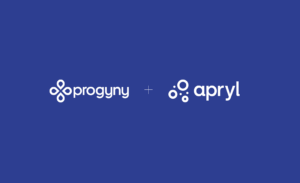Life would be pretty dull if we all looked the same, behaved the same and liked the same stuff, wouldn’t it? Embracing differences is a great thing and when it comes to business, employers are beginning to realise that this approach can be hugely beneficial.
Diversity across the workforce improves productivity, increases revenue and drives innovation and creativity, amongst other things. But to be able to fish in the widest talent pool and create a diverse workforce, employers need to offer more than just a wage.
This is because employees want to work for businesses that champion inclusivity and equality. In fact, a study by Glassdoor found that 78% of employees expect their employers to be inclusive and to treat everyone equally. To do this, employers need to have policies, processes and benefits that consider the needs and wants of individuals of all races, ethnicity, gender, sexual orientation, and socio-economic status.
Fertility benefits are one such benefit that employers are implementing in a bid to promote diversity, equality, and inclusivity. But how are fertility benefits advantageous to both employees and employers? And which companies are already offering their employees fertility benefits?
In this article, we explore how fertility benefits can make a huge difference at an individual, staff and company level and look at some examples of companies that are using fertility benefits to attract top talent.
Why are fertility benefits important for employees?
It’s estimated that 1 in 7 heterosexual couples in the UK experience infertility. However, family planning issues don’t just affect heterosexual couples. Those in same-sex relationships or partners of other genders also face barriers to expanding their family including cost, discrimination, and stringent eligibility criteria. The same can also be said for single individuals wishing to become parents. Furthermore, ethnic and racial minority groups suffer from health disparities in Europe, which includes when seeking and receiving fertility treatment.
In addition, infertility and/or difficulty in accessing treatment can have a hugely detrimental impact on overall employee wellbeing. For instance, studies have found that infertility can lead to depression, anxiety, lowered self-esteem and even mood disorders.
Fertility benefits can provide equality to all employees by giving them access to fertility treatments and thus, give them the chance to expand their families. Moreover, fertility benefits create equity too. By offering comprehensive fertility benefits that cover a broad range of treatments including consultations, counselling, diagnostic testing, medicated cycles, IUI, IVF, egg and sperm freezing, surrogacy, investigative and corrective surgeries and adoption, employers can ensure that all employees have access to the healthcare that they need based on their personal circumstances.
How do employee fertility benefits help attract top talent?
As an employer, offering fertility benefits demonstrates that you recognise the hardships that employees can face with family planning and also shows prospective employees that you are a family-friendly workplace, regardless of how that family is formed.
Employee fertility benefits are also a clear indicator that you support LGBTQ+ employees and that you want women within your company to thrive at home and work. This is particularly important given that women, and more specifically, women of colour are dramatically underrepresented in leadership roles.
Fundamentally, fertility benefits speak volumes about how much you value your people and their wellbeing. Due to this, you are more likely to attract a wider range of candidates as well as retain the employees you already have.
Which companies offer fertility benefits?
Many companies across the globe offer their employees fertility benefits. We have taken a deep dive into these businesses and have collated a list of just some of the corporations that provide fertility benefits to their UK employees.
LinkedIn introduced its employee fertility benefits programme in 2019 following a survey of 5,000 workers and HR professionals that revealed workplace policies weren’t meeting the needs of employees, especially those wanting to have a child.
Their policy allows UK employees to claim back the money they spend on fertility treatment or the adoption process, to a maximum of £7,000 per cycle and with a lifetime limit of £21,000. In addition, LinkedIn also offers employees 24/7 access to a confidential counselling service and access to webinars and a database of family services.
Since its fertility policy was rolled out, LinkedIn has reported that it has improved employee wellbeing and cultural cohesion, as well as employee retention and attraction.
Apple
Back in 2014, the company announced that it would fund up to £16,000 of egg-freezing in a bid to attract more women to their workforce and empower female employees to make choices. Now, Apple states on their website that their medical coverage for UK employees covers fertility benefits and they supplement this further with paid leave and a gradual return to work programme.
Meta
Meta, formerly known as Facebook, offers enhanced fertility coverage for all employees over the age of 18 who pay into specific health care plans. They offer four cycles of treatment with no pre-approval required, including pre-implantation genetic testing, ICSI, telephone access to clinicians and counsellors, and three years of tissue storage.
Starbucks
IVF and other fertility treatments are covered by Starbucks under their health insurance. The global coffee chain covers up to $25,000 in treatment expenses and a further $10,000 for prescriptions. This cover is even provided to part-time employees, so long as they work a minimum of 20 hours a week.
In 2019, Starbucks also added surrogacy and IUI to its benefits reimbursement scheme. This move means that employees can claim back funds if not covered by their health insurance to a total of $10,000 per qualifying surrogacy event or a $30,000-lifetime maximum.
Adobe
Adobe offers UK employees up to a £15,000 lifetime combined allowance for employees and their partners. This can be used for consultations, scans, assisted conception, IVF, surgical operations, embryo freezing for 12 months and outpatient drugs.
To further champion equality in the workplace, Adobe also has a menopause plan that provides employees with tailored treatments and care from a menopause-trained GP.
Cooley
Cooley is a global law firm, and it was listed by Great Place to Work on their Best Workplaces for Parents list for 6 consecutive years. A contributor to this accolade is the company’s fertility benefits which include egg freezing, IVF, surrogacy and adoption, with reimbursements of costs up to £45,000. All new and expecting parents also have access to free pre- and post-natal support including sleep consultations and lactation specialists.
If you’d like to join the growing number of companies offering fertility benefits and contribute to improving diversity, inclusivity and equality across the UK workforce, find out more about apryl. We help employers to support their employees start a family through inclusive family building and fertility benefits.




